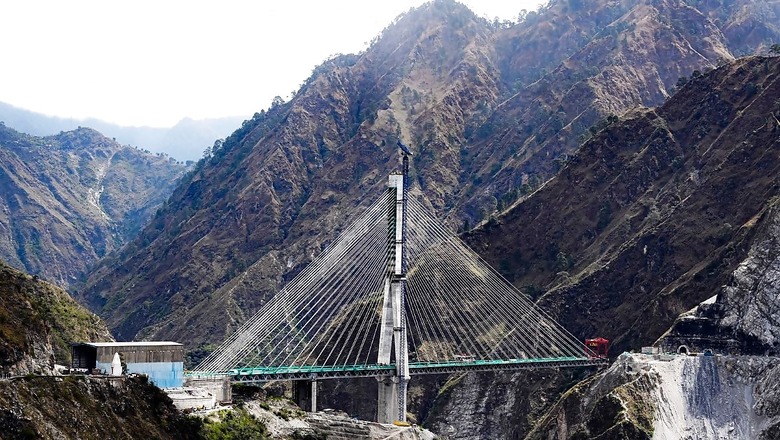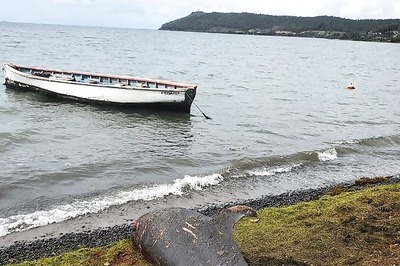
views
Railways Minister Ashwini Vaishnaw has announced that India’s first cable-stayed rail bridge is ready. The minister said the work on Anji Bridge has been completed in 11 months.
In 11 months, India’s first cable stayed rail bridge is ready.All 96 cables set! #AnjiKhadBridgePS: Total length of cable strands 653 km???? pic.twitter.com/CctSXFxhfa— Ashwini Vaishnaw (@AshwiniVaishnaw) April 28, 2023
Anji bridge is an “asymmetrical” bridge erected on a single pylon and it has tunnels on both ends. A tunnel on the Katra end is 5 km in length while another on the Kashmir end is 3 km in length. A track is laid in both tunnels, according to officials.
The speed of trains will be 100 kmph on this bridge which is the speed for the entire project. However, the trains will be stopped if the wind speed goes beyond 90 kmph, a senior official had said.
Currently, trains operate between Udhampur to Katra section. The project work on the 111-km Katra to Banihal line is currently underway and 52 km of this section including the bridges on Anji and Chenab are being built by Maharashtra-headquartered Konkan Railway. Banihal and Baramulla are also connected by trains.
The project is part of the ambitious Udhampur-Srinagar-Baramulla-Rail Link (USBRL) project that railway minister Ashwini Vaishnav had announced would be completed next year. Once complete, the USBRL project will connect the Kashmir Valley to the national rail network.
The cable-stayed portion of Anji bridge is 472.25 metres while the total length of the bridge is 725.5 metres, which is divided into four parts including an embankment, officials said.
The deck level of the 193-metre tall bridge from the foundation is 51 meters, while the invested Y-shaped pylon above the deck level is 142 meters, the officials said, adding that the bridge work started in 2017. However, the main cable-stayed bridge work started in April 2018, after the completion of the approach portion, an official said.
The official said the bridge has a codal life (normal average life of machines, equipment, and infrastructure calculated as per working shift) of 120 years and it will be able to bear the explosion of 40 kg of explosive material. The bridge will also have an integrated monitoring system with numerous sensors installed at various locations.
Read all the Latest India News here



















Comments
0 comment